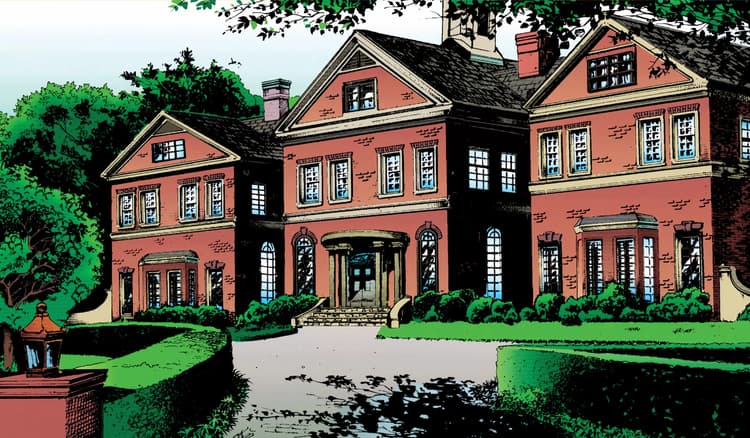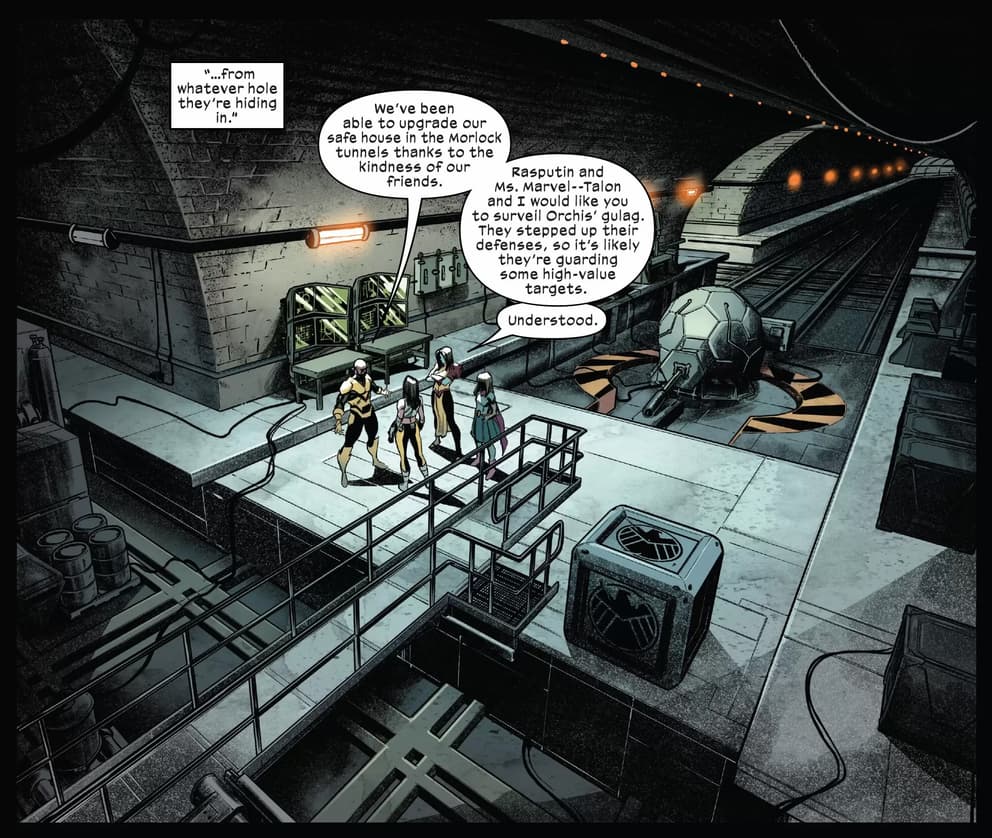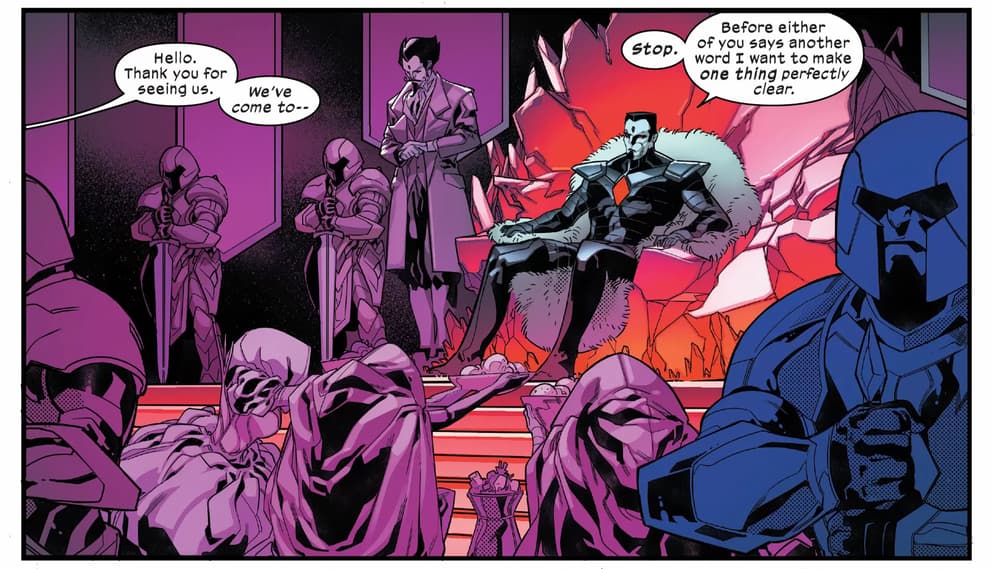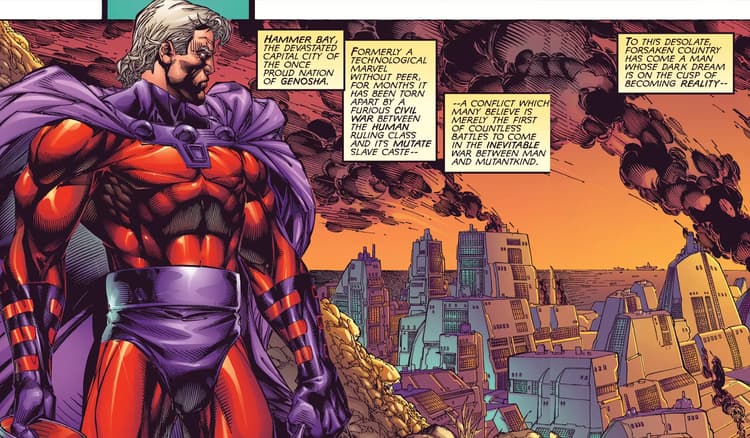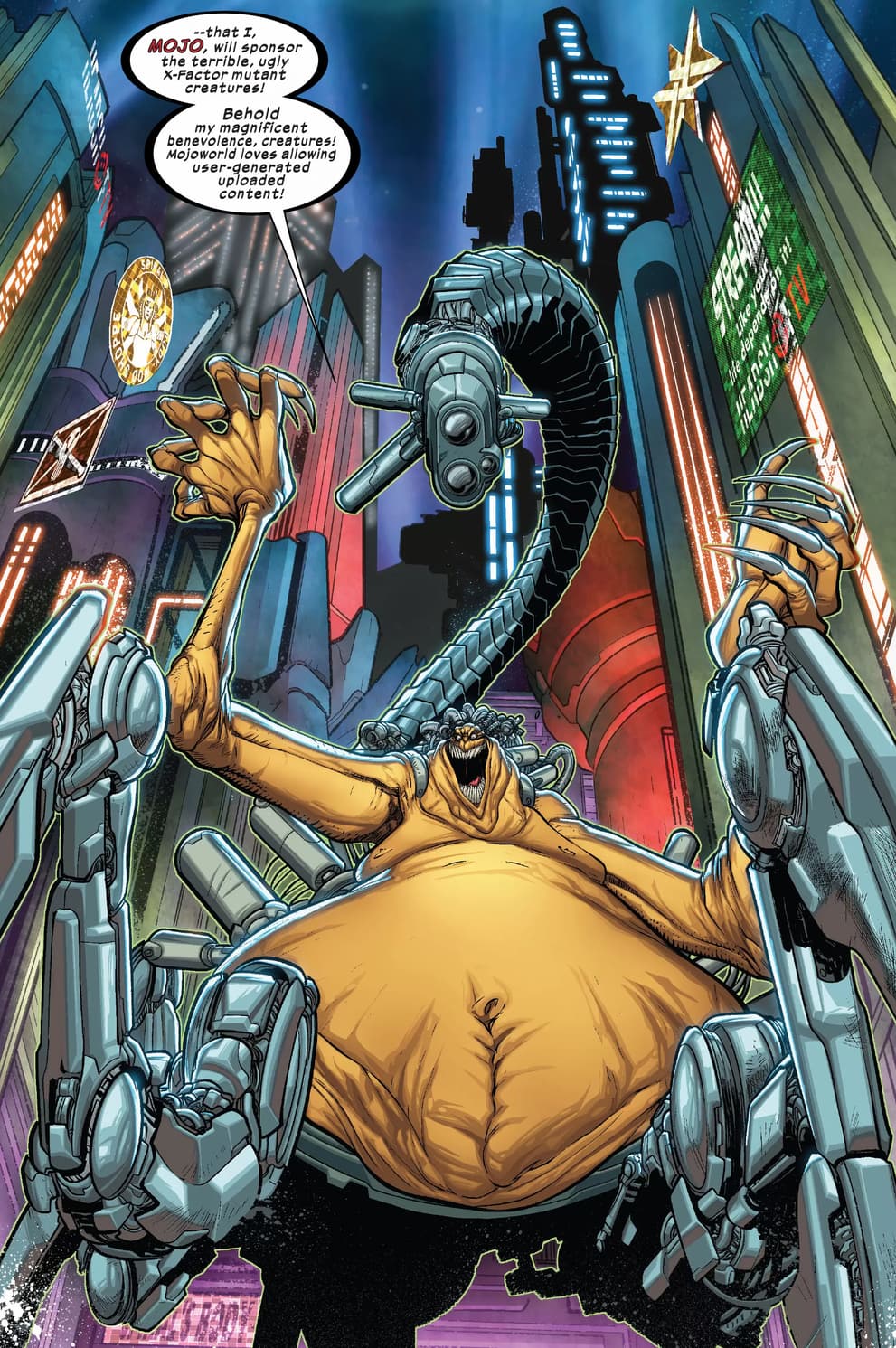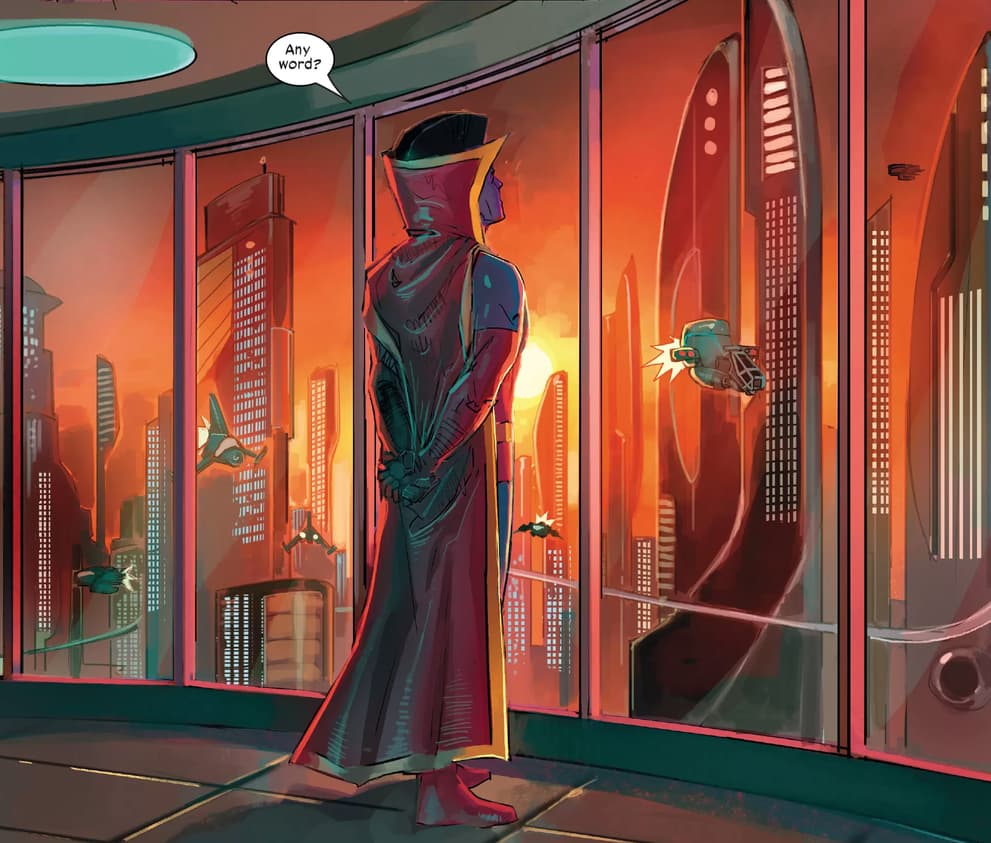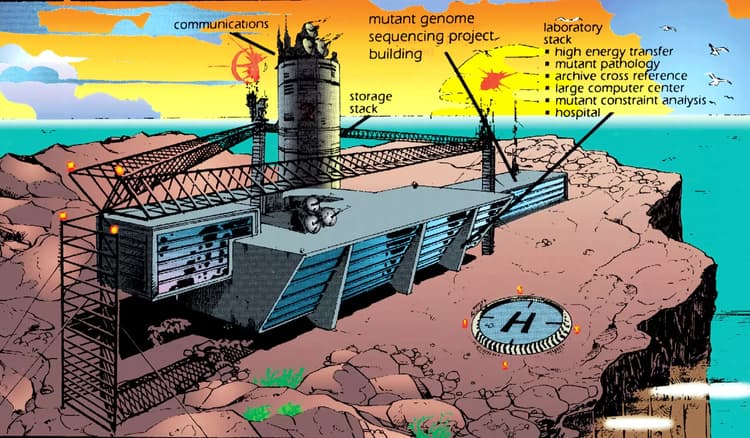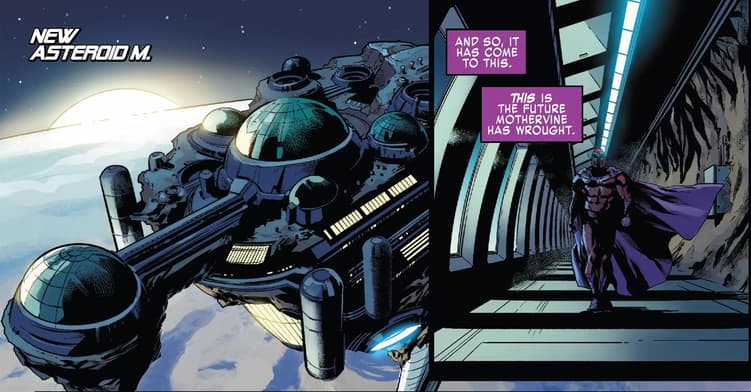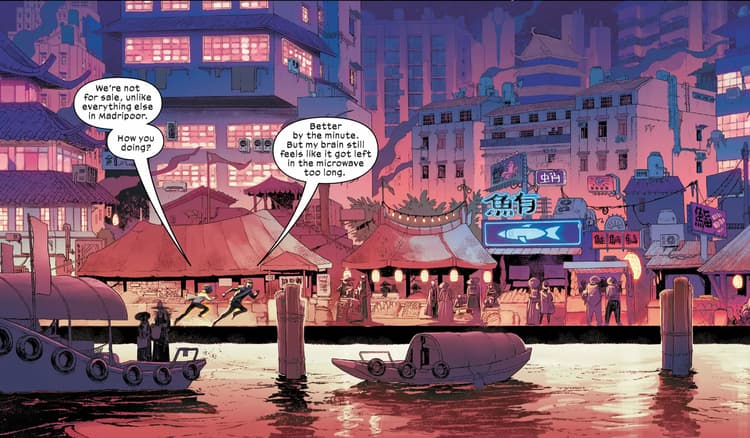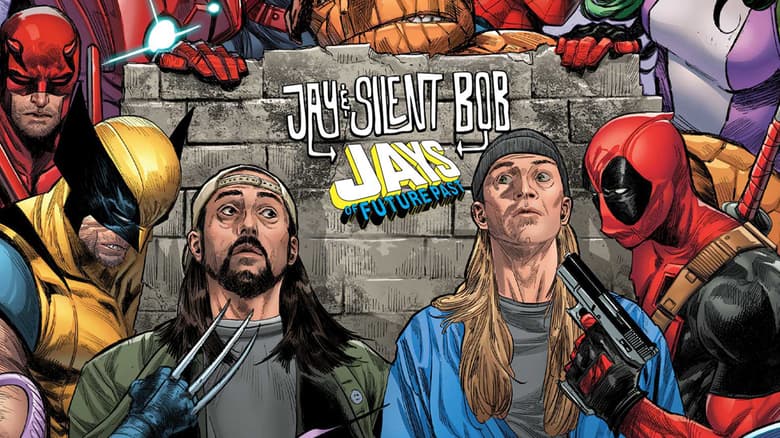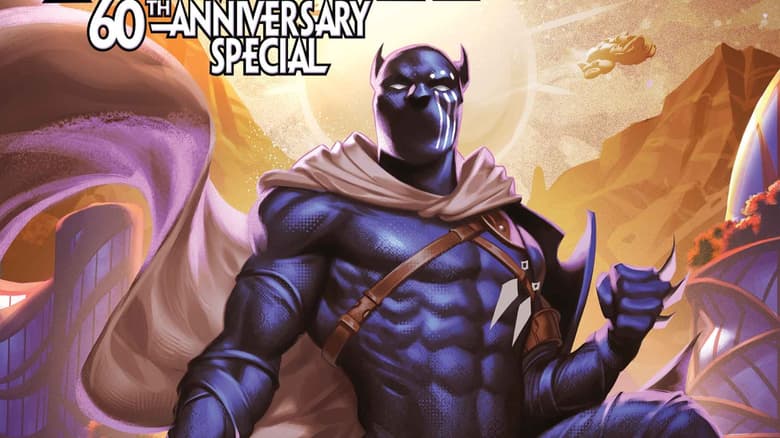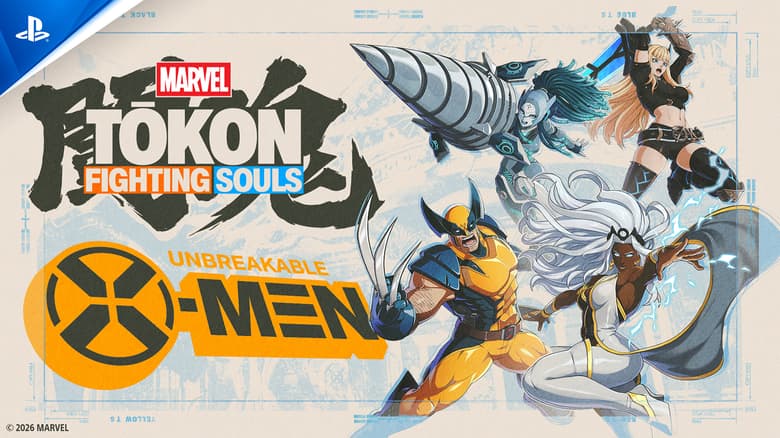Important X-Men Locations, Explained
Discover the Xavier Institute, Genosha, the Morlock Tunnels, and other locations that have played a critical role in X-Men history.
To survive in a world that hates and fears them, the X-Men and their mutant allies need places they can call their own. Due to the unique status of mutants within the wider Marvel Universe, the X-Men, their allies, and even their enemies have frequently stepped away from the rest of Marvel's heroes and villains. Instead of finding safety in isolation, though, mutantkind faced new threats as their fight to save their future spread to new battlegrounds.
Now, let's take a closer look at some key locations across X-Men history, from the team's bases to mutant hideouts and villain strongholds. We'll also break down why these places are so important to X-Men lore and how they factored into some of the most critical moments in Marvel history.
XAVIER'S INSTITUTE
The official name of Xavier's School for Gifted Youngsters has changed numerous times, but its mission has remained the same since its debut in X-MEN (1963) #1 by Stan Lee and Jack Kirby. The Xavier Institute has given generations of X-Men and other mutants a place to study, train, and learn how to survive and protect a world that does not accept mutants.
Before it was a school, the X-Mansion was the family home of Charles Xavier; both he and his stepbrother, Juggernaut (Cain Marko), grew up on the sprawling estate. The Institute has been heavily damaged or destroyed numerous times, but the Graymalkin Lane mansion has always been rebuilt in Westchester County, New York. In addition to serving as the X-Men's base, the Xavier Institute has occasionally welcomed human students, further embodying Xavier's dream of a future where mutants and humans cohabitate peacefully.
MORLOCK TUNNELS
Debuting in UNCANNY X-MEN (1963) #169 by Chris Claremont and Paul Smith, a group of outcast mutants called the Morlocks hid themselves away from the rest of the world. Feeling rejected by society, the Morlocks turned the unconnected sewer lines and abandoned subway stations of New York City into a vast underground habitat called the Alley, or more commonly, the Morlock Tunnels.
Under the leadership of Callisto, the Morlocks endured numerous trials, including the "Mutant Massacre." After realizing his research had been used to experiment on some Morlocks, a furious Mister Sinister had Sabretooth and his Marauders butcher hundreds of the underground mutants during this crossover event.
The Morlocks left the tunnels when Professor X and Magneto invited the world's mutants to the mutant nation Krakoa. When the mutant-hating group Orchis launched a global attack on Krakoa, the X-Men used the Morlock Tunnels as a temporary base.
MISTER SINISTER'S LAIRS
To carry out his numerous plans against the X-Men and conduct his cruel experiments on mutants, Mister Sinister has maintained a series of interconnected labs and bases since his debut in UNCANNY X-MEN (1963) #221 by Chris Claremont and Marc Silvestri. For instance, Sinister once operated out of a base underneath the Nebraska State Home for Foundlings, the orphanage where Cyclops grew up, which allowed him to manipulate and torment the young X-Man from afar. At the Weapon X facility in Canada, Sinister oversaw the Neverland camp, where thousands of mutants were killed.
Frequently staffing his labs with clones of himself, Sinister has kept facilities in isolated locations in Alaska and Antarctica, as well as near major cities like San Francisco. In addition to his lab on Muir Island, Sinister operated out of Bar Sinister, an island in the Pacific Ocean, where he began his efforts to create a complete genetic database of every mutant on Earth.
GENOSHA
Although Genosha is a relatively small island nation, it has been the site of two of the most horrific events in the history of mutantkind since debuting in UNCANNY X-MEN (1963) #235 by Chris Claremont and Rick Leonardi. Initially, Genosha was led by a harsh anti-mutant regime that used mutants as forced labor. Under the leadership of mutant haters like Cameron Hodge and the Genegineer, Genoshan mutants were brainwashed into mindless "mutates."
After the X-Men toppled that regime, Magneto eventually emerged as the island's new ruler. Although Magneto's Genosha was more welcoming to mutants, most of the nation's population was wiped out in a Sentinel attack planned by Cassandra Nova, Xavier's evil twin sister, in NEW X-MEN (2001) #115 by Grant Morrison and Frank Quitely. While villains like Selene and the Red Skull briefly established based in Genosha, the nation has remained largely unoccupied, despite a few attempts to rebuild and resurrect its residents.
MOJOWORLD
Located in a dimension called the Mojoverse, Mojoworld is a media-obsessed world ruled by the tyrannical Mojo. The Spineless Ones and the other residents of Mojoworld grew dangerously obsessed with entertainment after receiving TV broadcasts from Earth. Using a race of genetically engineered humanoid servants, Mojo has satisfied his population with a constant flow of new programming since Mojoworld's debut in LONGSHOT (1985) #1 by Ann Nocenti and Arthur Adams.
Mojo is obsessed with turning mutants into content, and he created young clones of the X-Men called the X-Babies, who are some of Mojoworld's biggest stars. Mojoworld is also the homeworld of Longshot, a genetically engineered stuntman who rebelled against Mojo and joined the X-Men, and Shatterstar, Longshot's son with the X-Men's Dazzler. Although she served as Mojo's enforcer for years, Spiral—a six-armed cybernetic sorcerer—broke free of his control and became one of the X-Men's closest allies on Mojoworld.
CHANDILAR
Thanks to Professor X's relationship with Majestrix Lilandra Neramani, the X-Men are close allies of the Shi'ar Empire, one of the most powerful cosmic empires in the Marvel Universe. The throneworld, Chandilar, has stood as the center of the Shi'ar Empire since the planet's debut in UNCANNY X-MEN (1963) #154 by Chris Claremont and Dave Cockrum.
In addition to serving as the seat of the Shi'ar government, Chandilar is also home to the Imperial Guard, the elite fighting force dedicated to serving the Shi'ar leader, and the X-Men's Cannonball, who is married to Imperial Guard member Smasher. In Lilandra's absence, Vulcan—Cyclops and Havok's powerful long-lost brother—and Gladiator—the champion of the Imperial Guard—have both ruled the Shi'ar from Chandilar.
The Shi'ar throneworld is currently overseen by Majestrix Xandra, the daughter of Lilandra and Xavier, who embraced the mutant nation Krakoa and welcomed asylum-seeking mutants into her galactic empire.
MUIR ISLAND
Located off the coast of Scotland, Muir Island is an isolated mutant research base operated by the X-Men's longtime ally (and occasional nemesis), Moira MacTaggert. Since Muir Island debuted in UNCANNY X-MEN (1963) #104 by Chris Claremont and Dave Cockrum, Moira has used the island to develop a cure for a mutant plague called the Legacy Virus and contain mutants with volatile abilities—such as her reality-warping son, Proteus.
Beyond Moira, several X-Men have spent considerable time living on the island, including Banshee, Wolfsbane, and Multiple Man. Muir Island was also the home of the Muir Island X-Men, a short-lived group that came together to battle the Reavers and find several missing X-Men.
The small island has also served as a base for Excalibur, a mutant team based in the United Kingdom, and Mister Sinister, who operated a secret lab there where he experimented on clones of Moira and their mutant ability to reset time.
ASTEROID M
Magneto has long believed that mutants stand above mere humans, and Asteroid M embodied that idea. Filled with advanced technology, Asteroid M is a massive orbital space station that debuted in UNCANNY X-MEN (1963) #5 by Stan Lee and Jack Kirby. Although Asteroid M has been destroyed and rebuilt multiple times, Magneto has used it as a refuge and a base for groups like the Brotherhood of Evil Mutants and his Acolytes.
When Magneto tried to destroy debris from Asteroid M that had fallen to Earth, he inadvertently led the X-Men into a conflict with the Avengers in X-MEN VS. AVENGERS (1987) #1 by Roger Stern and Marc Silvestri. Parts of Asteroid M were also used to construct Magneto's Avalon, an even bigger space station that incorporated elements of Cable's Graymalkin station, and Utopia, an artificial island where the X-Men formed a short-lived mutant nation off the coast of San Francisco.
MADRIPOOR
The island of Madripoor, a small nation in Southeast Asia, has served as a hub for international criminal activity since its debut in NEW MUTANTS (1983) #32 by Chris Claremont and Steve Leialoha. Originally a haven for pirates, this city-state is divided into two main areas: the ultra-wealthy Hightown and the underprivileged Lowtown.
When Wolverine has stepped away from the X-Men, he frequently traveled to Madripoor while posing as a mysterious eyepatch-wearing figure known as "Patch." With help from Logan, Tyger Tiger—the owner of Lowtown's Princess Bar—became the island's relatively moral crime lord and eventual leader.
While Mystique briefly set up a criminal operation on the island, villains like Viper—a long-serving leader of Hydra—and Daken—Wolverine's long-lost son—briefly took over Madripoor. Magneto also briefly established an X-Mansion in Madripoor to train a team of time-traveling X-Men.
Want to read more about the X-Men adventures at these locations? Join Marvel Unlimited for instant access to 30,000+ comics on the Marvel Unlimited app or on the web, with digital issues spanning Marvel Comics classics to ongoing series!
The Daily Bugle
Can’t-miss news and updates from across the Marvel Universe!
